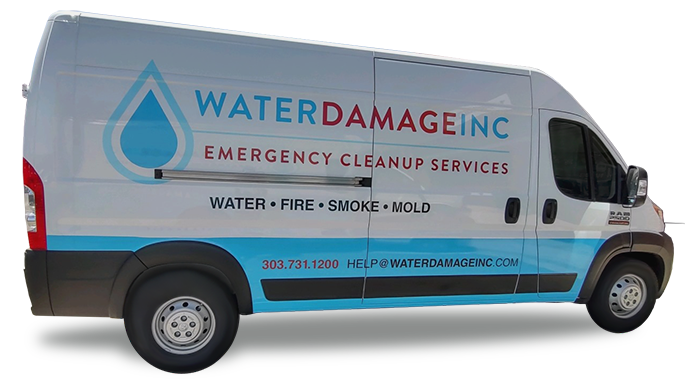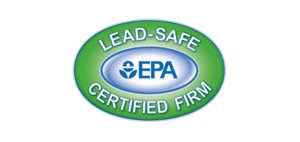Answering this question is complex and depends on many variables. Landlords should familiarize themselves with landlord-tenant laws and provide their tenants with safe living environments free of water damage.
Tenants should refrain from making unapproved modifications to rental properties, such as painting without prior consent from the lease agreement. They should also report repair issues immediately so as to stop potential worsening of issues.
Water Removal in Denver, Colorado
Water damage is capable of severely destabilizing buildings and damaging personal items, but professional water damage restoration experts can quickly help dry up an affected area and return it back to a safe condition – including removal of carpets, floors, furniture and other items – by extracting water out. They may even repair and replace any damaged materials as part of this service.
Water damage typically results from leaky roofs, but other causes include faulty appliances, plumbing defects, corroded pipes and flooding. To avoid water damage altogether, regular inspection of your property and all its components is key in order to safeguard it against future water issues – specifically roof and gutter inspections for cracks or missing shingles as well as keeping gutters clear of debris. It may also be wise to install an automatic shutoff valve on the main water line to be prepared in an emergency situation when turning off flow of water needs to stop running uncontrollably!
Landlords are responsible for keeping their rental properties habitable, including making necessary repairs that ensure tenants can live comfortably and having access to clean water. Landlords may deduct repairs costs from tenants’ security deposits but must always adhere to lease agreement terms and local housing laws when deducting costs.
Water damage liability falls to tenants up to the amount of their security deposit or, in cases involving intentional destruction or vandalism, full reimbursement by their landlord. Tenants should report any incidents of water damage directly to their landlords.
Landlords should provide adequate temporary living accommodations after a flood. Their ability to do this will depend on how extensive the damage is and whether or not their insurance covers this. In the event that this obligation is not fulfilled by their landlords, tenants may be eligible to break their lease early without incurring penalties; specific rules vary by state so it would be prudent to consult a tenant’s rights attorney or housing department to find out more information.
- Locate the leak. The first step is to locate the source of the leak. This may be difficult, as leaks can often be hidden behind walls or under floors. However, there are a few things you can do to help you find the leak.
- Look for signs of water damage, such as wet spots on the ceiling, walls, or floors.
- Listen for the sound of running water.
- Check for any loose or damaged pipes.
- Turn off the water supply. Once you have located the leak, you will need to turn off the water supply to the area. This will prevent the leak from getting worse and causing further damage.
- Repair the leak. Once the water supply has been turned off, you can begin to repair the leak. The specific steps involved in repairing a leak will vary depending on the cause of the leak. However, some common methods of repairing leaks include:
- Using a pipe repair kit. These kits typically contain epoxy resin and a hardener that can be used to seal small leaks.
- Replacing a damaged pipe. If the leak is caused by a damaged pipe, you will need to replace the pipe. This may require the services of a plumber.
- Installing a new faucet. If the leak is coming from a faucet, you may need to install a new faucet.
- Clean up the area. Once the leak has been repaired, you will need to clean up the area. This includes removing any water that has leaked and drying the area. You may also want to use a dehumidifier to help remove any moisture from the air.
- Prevent future leaks. Once the leak has been repaired, you can take steps to prevent future leaks. This includes:
- Inspecting your pipes regularly for signs of damage.
- Replacing old or damaged pipes.
- Installing leak detectors.
- Keeping your home well-maintained.
Drying Out
Water damage is a serious threat that threatens to destroy your property. From roof leaks and busted pipes to flooding or any number of other issues, timely action must be taken to address this problem and prevent further damages and costly repairs. Being familiar with the signs of water damage in your home or apartment will enable you to recognize when an incident has taken place and act on it quickly when necessary.
Sign 1: Unexplained High Utility Bills
If your utility bills have been steadily increasing without explanation, this could be a telltale sign that there’s an underlying water issue at play in your property. Leaks from pipes and appliances as well as other issues can create excess moisture which eventually causes utility costs to skyrocket – should this occur, get in contact with your landlord immediately so he or she can assess what action can be taken to remedy the situation and prevent future utility costs from skyrocketing further! If this occurs, call your landlord right away so he/she can address what can be done immediately to rectify it before further damages occurs!
Sign #2: Mold Appears in Your Home
If mold appears anywhere in your home, whether walls, ceilings or carpet, it’s time to seek assistance! Mold can be detrimental to both health and structure of a dwelling if left unattended; should this occur it is essential that immediate action are taken and that any landlord be notified as they can then conduct inspections for potential issues in that area.
Landlords have an obligation to ensure that their properties are safe and habitable for tenants, yet sometimes make mistakes or delay in addressing problems immediately. If you’re renting and discover that your landlord has failed in fulfilling their duties as regards maintaining your property, legal action may be available against them for damages that you’ve sustained as a renter.
Tenants have an obligation to keep their apartments in good condition, which includes repairing any damages they or their guests cause beyond “reasonable wear and tear.” If you discover water damage in your apartment, it’s crucial that you read your lease agreement carefully in order to file a claim for damages against your landlord. In many instances, rent can be deducted accordingly depending on how your lease agreement and state laws regarding landlord/tenant relationships work.

Mold Remediation in Colorado
Water damage left unaddressed immediately can result in mold growth. Once mold develops, professional treatment should be sought immediately to mitigate further health hazards.
Mold can spread rapidly in Colorado’s humid environment. It thrives in warm environments like basements, crawl spaces and attics while it also thrives in damp places like walls and carpets. Because mold exposure may lead to serious health concerns including respiratory problems it is vitally important that it is addressed as soon as possible.
Many landlords include “mold clauses” in their lease agreements to shield themselves from liability should tenants become sick from mold exposure, but this may not be enough to avoid litigation; if negligence was at play during mold exposure, tenants could seek compensation for medical expenses, lost wages, property loss and other damages from their landlords.
If you’re renting, make sure your lease outlines who is responsible for repairs if there is water damage in the apartment or house. Some landlords may include language in the agreement stating renters insurance will cover any personal belonging damage; it would also be wise to keep an eye out for potential plumbing leaks or any other source of moisture damage in the unit.
Landlords must comply with an implied warranty of habitability, which states they should provide tenants with housing that meets this standard. If mold becomes an issue in your apartment or house, you have every right to withhold rent until it’s resolved.
If a landlord fails to act appropriately in response to being informed about mold problems, tenants can file an eviction complaint against them. Furthermore, tenants who live in deplorable conditions can cancel their lease without penalty and sue for the difference between what their stated rent amount is and its true market value.
Tenants who experience mold issues should seek legal advice immediately. While taking their landlord to court may be complex, tenants could potentially recover damages for medical expenses, lost wages, and any other losses related to mold exposure.
Cleaning Up
Water damage to a home or apartment can be devastating for both its structure and contents, so taking swift action when signs of leakage emerge is paramount to both protecting your personal belongings as well as the health and integrity of the structure itself. Delaying action for too long could cause permanent structural issues to emerge within minutes, necessitating professional restoration services like Water Damage Inc to ensure your property receives proper restoration back to a healthy condition.
Water damage in rental properties is a vexing challenge for landlords, but luckily most rentals have landlord insurance which provides repairs for such repairs. Furthermore, landlords should know some key points about managing and protecting their rentals from water damage.
Tenants Have an Obligation to Report Problems
Your primary responsibility as a landlord is providing your tenants with a livable environment. If they notice problems such as discolored stains on walls or ceilings, musty odors, and warm spots on floors or walls they must report these immediately to you as the landlord. Landlords must maintain open communication channels with tenants to help educate them on recognizing signs of plumbing problems or water damage and how best to respond accordingly.
Who Is Responsible for Damage Costs? The answer to this question can be complex and it depends on both what type of damage was sustained and its source. For example, if it occurred due to natural forces rather than tenant negligence, then landlord may bear this expense. Otherwise, tenants could be held liable if their handling was negligent and they failed to notify landlord immediately of issues such as leakage issues that required repair work.
At the core, responsibility for water damage in an apartment or home lies with both the lease agreement and local laws. Landlords should ensure their lease agreements clearly define each party’s responsibilities while simultaneously educating tenants on how they can prevent costly water damage in their apartments through education and an open line of communication with tenants will help reduce costly water damage repairs in rental properties.






















